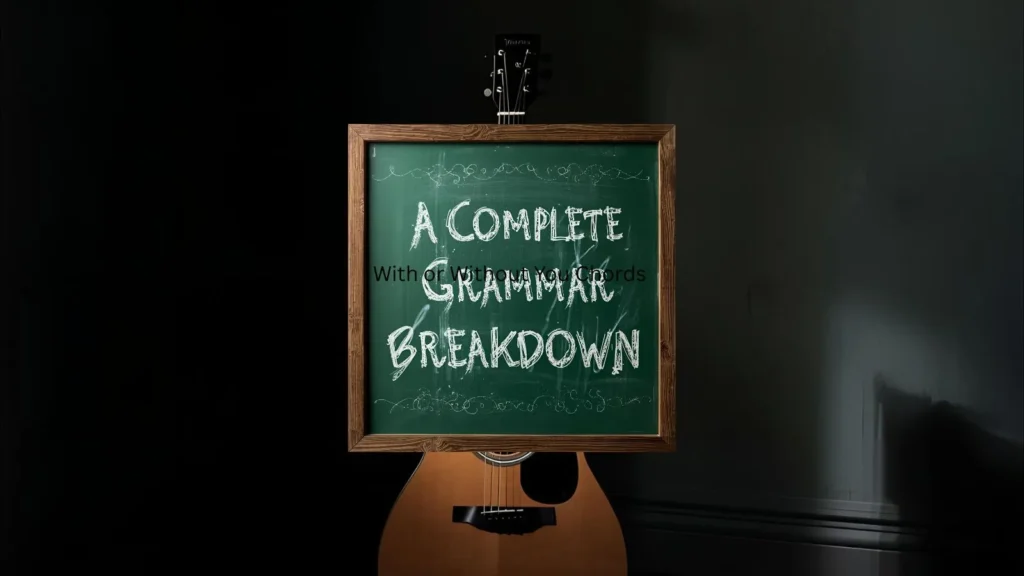Do you pause when choosing between “may” and “might”? You’re not alone. Many people search for “may or might” because the two words feel the same but are not always interchangeable.
The confusion comes from their history, grammar use, and how English varies between American and British styles.
Both words show possibility. But one sounds more formal and sure, while the other sounds casual or less certain.
If you mix them up, your message may sound unclear, especially in writing. That is why learners, professionals, and writers want a clear guide.
This article gives you a quick answer, explains their origin, compares UK vs US usage, shows common mistakes, and shares real-life examples.
You’ll also see Google Trends data and a comparison table to help you choose correctly. By the end, you’ll know exactly when to use may and when to use might.
May or Might – Quick Answer
- May → Used for permission and stronger possibility.
Example: “You may leave early today.” - Might → Used for weaker or uncertain possibility, often in hypotheticals or past events.
Example: “He might come if the rain stops.”
👉 Rule: Use “may” for formal permission or likely events. Use “might” for uncertain, casual, or past conditions.
The Origin of May or Might

- May comes from Old English magan, meaning “to be able” or “to have power.”
- Might was first the past tense of may, but over time it took on its own meaning of weaker or hypothetical possibility.
That is why today, may shows stronger chance or authority, while might signals weaker chance or imagination.
British English vs American English Spelling
There is no spelling difference. Both are written as may and might. But usage differs:
- British English → “Might” is more common in casual speech.
- American English → “May” is more common in formal writing.
Comparison Table: May vs Might
| Feature | May | Might |
| Certainty | Stronger chance | Weaker chance |
| Tense | Present / Future | Past / Hypothetical |
| Formality | More formal | More casual |
| British English use | Formal, permissions | Everyday conversations |
| American English use | Business, legal, academic | Informal, spoken language |
Which Spelling Should You Use?
Since spelling is the same, it depends on your audience:
- For US readers → Use may in writing, might in casual talk.
- For UK/Commonwealth readers → Both work, but might feels more natural in speech.
- For global readers → Use may in formal or professional writing. Use might in casual or hypothetical situations.
Common Mistakes with May or Might
- Using “may” for past hypotheticals
- ❌ She may have come if invited.
- ✅ She might have come if invited.
- ❌ She may have come if invited.
- Mixing permission with chance
- ❌ You might leave now. (uncertain)
- ✅ You may leave now. (clear permission)
- ❌ You might leave now. (uncertain)
- Overusing “may” in casual talk
- ❌ If he studied, he may pass.
- ✅ If he studied, he might pass.
- ❌ If he studied, he may pass.
May or Might in Everyday Examples
- Email (formal):
“I may not attend due to travel delays.” - News headline:
“Storms may affect weekend flights.” - Social media (casual):
“I might grab pizza later—anyone in?” - Academic writing:
“This result may suggest a link between diet and health.”
May or Might – Google Trends & Usage Data
Search data shows:
- “May” is more popular in the US, especially in business and academic searches.
- “Might” is more common in the UK and Commonwealth, often in casual speech.
- Globally, may dominates in professional and formal writing.
Usage Comparison Table
| Region | More Popular Word | Typical Contexts |
| United States | May | Legal, business, academic |
| United Kingdom | Might | Casual, conversational |
| Canada | Both | Neutral, context-based |
| Australia | Might | Informal, spoken English |
| Global Average | May | Formal, professional writing |
FAQs on May or Might
1. Can I use “may” and “might” interchangeably?
Not always. “May” is stronger and formal; “might” is weaker or hypothetical.
2. Is “might” the past tense of “may”?
Historically yes, but today it works on its own.
3. Which is more formal?
“May” is more formal, used in business, law, and academia.
4. Can “may” mean permission?
Yes. Example: “You may enter now.”
5. Which should I use in academic writing?
Use “may” unless stressing speculation—then use “might.”
6. Why do Brits use “might” more?
It sounds more natural in casual speech.
7. Can I say “may have” and “might have”?
No. “May have” = present/future possibility. “Might have” = past hypothetical.
Conclusion
The choice between may and might depends on certainty, tone, and context. Use may when you need to sound formal, polite, or when giving permission. Use might when you want to show doubt, imagine a scenario, or talk about the past.
In the US, “may” feels more professional, while “might” fits everyday talk. In the UK, both are fine, but “might” is more natural in casual use. For global writing, stick to may in formal settings and might for relaxed or speculative language.
Mastering this difference helps you write with clarity, avoid mistakes, and match your tone to your audience. Next time you wonder about “may or might,” you’ll know exactly which to choose.


